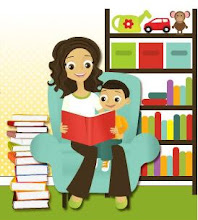- According to Debbie Levy, author of Maybe I'll Sleep in the Bathtub and Other Funny Bedtime Poems, "poems are short enough to hold the attention of even the most distractible child. Read one, take a break to talk about it or explore the illustration. Read another, do the same. Stop with a few poems, or read the whole book--either way, you have a satisfying reading experience.
- Read a short silly poem and have the children illustrate it. This helps children listen to the text and show their comprehension and interpretation.
- Encourage children to make up silly rhymes. Who cares if the words are made-up and will never be found in a dictionary? Where would Dr. Seuss be if he wasn't making up words? Would we ever know about the wocket in my pocket or the quimeny in the chimney? Having children make up rhymes encourages them to experiment with phonemic awareness which will form the groundwork for future reading skills.
- Record yourself reading poems on a CD. If you are a classroom teacher, enlist parents to help with this and have them each record one poem. All you need is a computer with a microphone and audio recording software such as Audacity and then burn the files to a CD. Place the CDs in your classroom listening area, in your car, or play them at naptime!
- Have Poetry Theater where children act out short poems.
- Write Rebus Rhymes on chart paper and encourage children to make up their own Rebus Rhymes.
- Create simple poetry starters for young children to complete. For example, children can start with the words, "Mothers are..." and finish by making a list of characteristics. Here is an example:
Mothers are
kind,
sweet,
loving,
busy.
That's what mothers are.
More Poetry Resources
- Mother Goose on the Loose
- Scholastic - Shared Poetry
- Poetry 4 Kids
- Preschool Poems
- Preschool Fingerplays, Action Poems, Nursery Rhymes, and Songs
Great Poetry Books for Young Children
























I love doing the Rebus rhymes and recordings! This is such an informative post!
ReplyDeleteThanks for spreading the importance of poetry as a valuable early teaching tool and a great foundation for not only being able to read but also *enjoying* and * appreciating* words and the English language later in life!
ReplyDelete